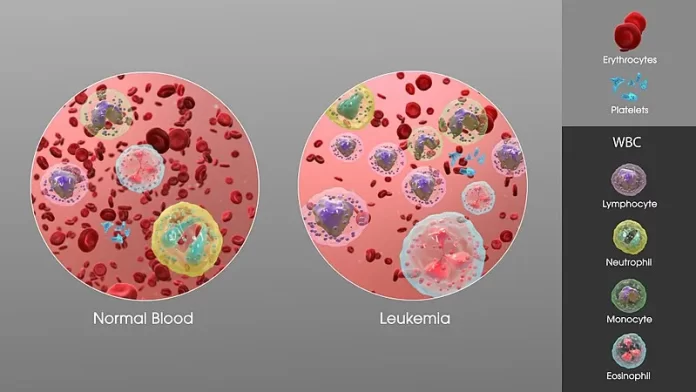Leukopenia is a medical condition characterized by a lower than normal level of white blood cells, specifically leukocytes, in the bloodstream. White blood cells are crucial for fighting off infections and diseases, so a decrease in their numbers can weaken the immune system and make individuals more susceptible to infections. Here’s an overview of leukopenia, including symptoms, causes, treatment, and prevention:
Symptoms:
- Frequent Infections: Individuals with leukopenia may experience frequent infections, including respiratory infections, urinary tract infections, or skin infections.
- Fatigue: Persistent fatigue or weakness can occur due to the body’s decreased ability to fight off infections.
- Fever: Recurrent or persistent fever without an obvious cause may indicate an underlying infection due to this.
- Mouth Sores: Painful mouth sores or ulcers can develop, especially in severe cases of leukopenia.
- Bruising or Bleeding: Reduced white blood cell count can lead to easy bruising or prolonged bleeding.
Causes:
- Bone Marrow Disorders: Leukopenia can result from bone marrow disorders such as aplastic anemia, myelodysplastic syndromes, or leukemia.
- Infections: Certain viral infections, such as HIV, hepatitis, or influenza, can suppress the production of white blood cells.
- Autoimmune Diseases: Conditions like lupus or rheumatoid arthritis can cause leukopenia due to autoimmune reactions against white blood cells.
- Medications: Chemotherapy drugs, antibiotics, and certain anticonvulsants can suppress bone marrow function, leading to leukopenia.
- Radiation Therapy: Exposure to radiation, either through cancer treatment or environmental factors, can damage bone marrow and reduce white blood cell production.
Treatment:
- Treating Underlying Causes: Identifying and addressing the underlying cause of leukopenia is crucial. This may involve treating infections, adjusting medications, or managing autoimmune disorders.
- Medications: In some cases, medications such as granulocyte colony-stimulating factor (G-CSF) or granulocyte-macrophage colony-stimulating factor (GM-CSF) may be prescribed to stimulate the production of white blood cells.
- Blood Transfusions: Severe cases of leukopenia may require blood transfusions to increase white blood cell counts and improve immune function.
- Avoiding Infections: Taking precautions to avoid infections, such as practicing good hygiene, avoiding contact with sick individuals, and getting recommended vaccinations, is important for individuals with leukopenia.
Prevention:
- Healthy Lifestyle: Maintaining a healthy lifestyle, including a balanced diet, regular exercise, adequate sleep, and stress management, can support overall immune function.
- Avoiding Harmful Substances: Limiting exposure to toxins such as tobacco smoke and environmental pollutants can help protect bone marrow function.
- Regular Check-ups: Regular medical check-ups can help detect and address any underlying health conditions that may contribute to leukopenia.
- Medication Management: Working closely with healthcare providers to monitor and manage medications, especially those known to affect white blood cell production, can help prevent leukopenia or minimize its impact.





























